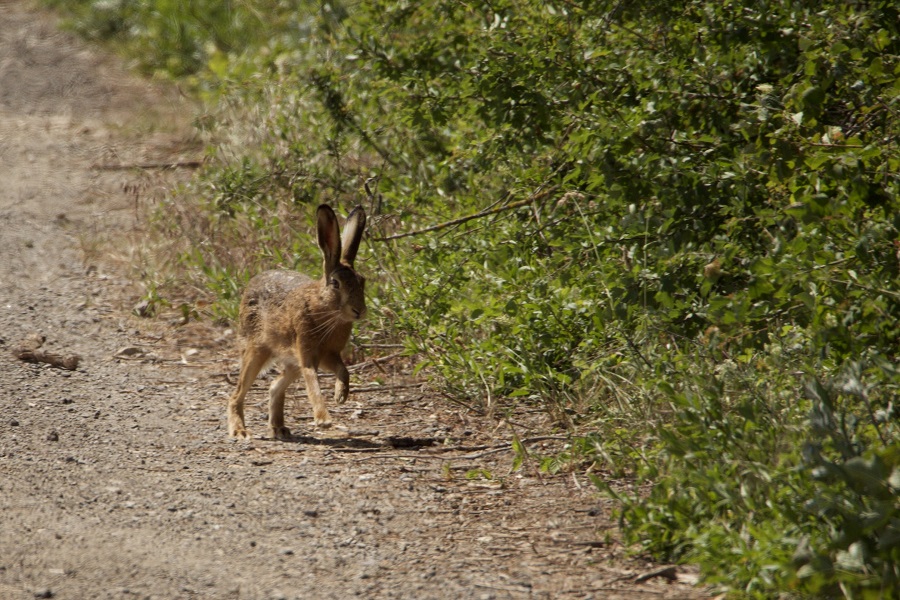11 Dec 2024

Tired Earth
By The Editorial Board

A research team has investigated the effects of agricultural grassland use on communities of organisms. Their study, recently published in the journal Nature Communications, for the first time reveals that measures such as fertilization and mowing affect organisms at all levels of an ecosystem and across entire food chains, thereby accelerating the entire system.
Everywhere in nature, living organisms are adapted to the conditions of their habitat. Depending on the environment, they rely on strategies of fast or slow growth, larger or smaller body size, and they reproduce at different rates. Two factors are decisive in this respect: the availability of nutrients, and the extent of "disruptive" external influences.
"You can visualize this like the fable of the hare and the tortoise—except that, depending on the environment, the 'race' is sometimes 'won' by organisms with one strategy and sometimes by those following the other," explains Prof. Dr. Peter Manning from the Senckenberg Biodiversity and Climate Research Center Frankfurt, who led the research team alongside Dr. Margot Neyret from the University of Grenoble Alpes.
"In undisturbed, nutrient-poor ecosystems, slower organisms—the 'tortoises'—prevail. They use their resources more sparingly, grow at a more leisurely rate, and reproduce less frequently, but they are usually larger and live longer. Under more nutrient-rich conditions, on the other hand, the faster 'hares' come out on top—these organisms tend to be smaller and have a higher nutrient turnover, with a lower life expectancy and higher reproduction rate.
"In our study, we were able to show for the first time that the intensive agricultural use of grassland leads to the 'hares' prevailing at all levels of an ecosystem."
In their study, the researchers analyzed a wealth of data collected as part of the Biodiversity Exploratories project for areas in the Swabian Alb, the Hainich region in central Germany, and the Brandenburg Schorfheide-Chorin biosphere reserve.
"We examined organisms from all areas of the sampled ecosystems—from microorganisms in the soil to plants, butterflies and other arthropods, to birds and bats," reports Neyret, formerly a research assistant at the SBiK-F.
"We were able to determine the effects of agricultural management in the form of fertilization, mowing, and grazing for almost all organisms. Compared to the unmanaged, natural areas, organisms that follow the 'grow fast, die young' strategy dominated here—the entire ecosystem had become 'faster' in these cases.
"This is partly due to the direct impact of the altered resources and environmental conditions and partly to indirect, cascading effects within food chains. Depending on the intensity of use, the ecosystems studied are distributed along an axis from 'slow' to 'fast.' Only in a few larger animals and soil organisms were we unable to observe this effect."
As the study shows, agricultural use also has an impact on various ecosystem functions performed by the organisms, which become "faster" as well, in line with the intensity of cultivation. "In the accelerated ecosystems, processes such as decomposition, biomass production, or nutrient cycling, for example, also occur more quickly," explains Manning.
"From a human perspective, such systems are initially more agriculturally productive and provide higher yields. However, this could reduce their ability to store carbon. At the same time, increased nutrient leaching leads to higher levels of pollution. Undisturbed, natural ecosystems, on the other hand, tend to have a higher level of biodiversity and are more resilient. This also plays a role with regard to climate-related increases in extreme weather phenomena."
Neyret adds, "Due to increasingly intensive agriculture, we are probably accelerating ecosystems around the world. We know from other studies that it is comparatively easy to speed up an ecosystem by using fertilizers—but returning it to its original 'slow' state takes significantly longer. We are thus losing more and more slow systems with their specific organisms and functions. In the interests of diversity—and also in view of the challenges posed by climate change –countermeasures are urgently needed in this regard."
Source : phys.org
Comment